Our Famous ‘Whale’s Tail’ and Playas Uvita & Hermosa
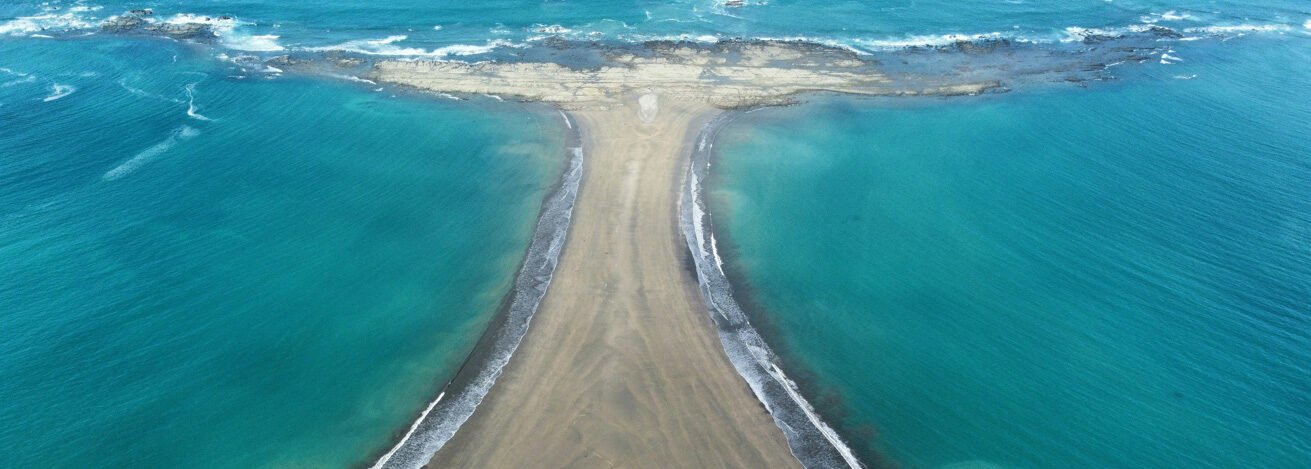
WHALE’S TAIL, THE TOWN OF UVITA & MARINO BALLENA NATIONAL PARK
One of the top tourist draws of Costa Ballena, and Costa Rica, is the world-famous Marino Ballena National Park located in the rapidly growing tourist Mecca town of Uvita (link to official website). Whatever you are looking for, you will find it here: high-adrenaline activities, whale watching, surfing, sport fishing, exquisite restaurants, 5-star accommodations, stunning natural beaches, picture-book jungle & mountain scenery, SCUBA reefs, exotic wildlife, the globally acclaimed ENVISION music and lifestyle festival, modern services & amenities, and everything in between. But today we will focus on one of the main stars of the region – a giant sand and rock formation locally referred to as ‘Moses Passage‘ or, more commonly, the ‘Whale’s Tail‘.
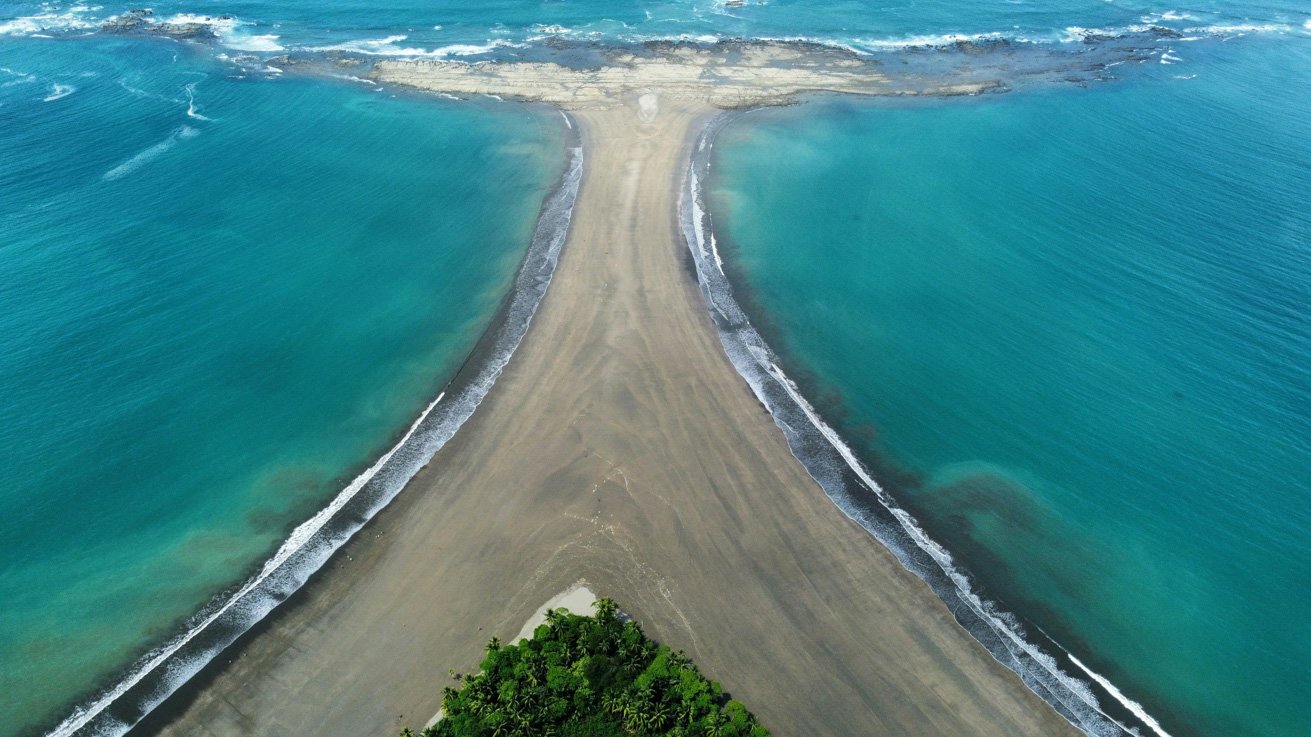
THE LANDFORM
Whale’s Tail is an example of a ‘Tombolo’ formation – an island which becomes attached to the mainland by a narrow spit, a natural ‘land bridge’ made of sand, shingles, or pebbles. The Whale’s Tail island, called Punta Uvita, is connected to Uvita Beach via a 600-meter sandspit. The sandspit was formed by sand-carrying ocean currents – as the currents approach the rocky island they curve around the sides of the island, slow down, and drop their loads of sand. The sand pile builds and builds until it connects the island to the mainland, often forming a familiar pointy tip that narrows as it approaches the island – as is seen in the Whale’s Tail.
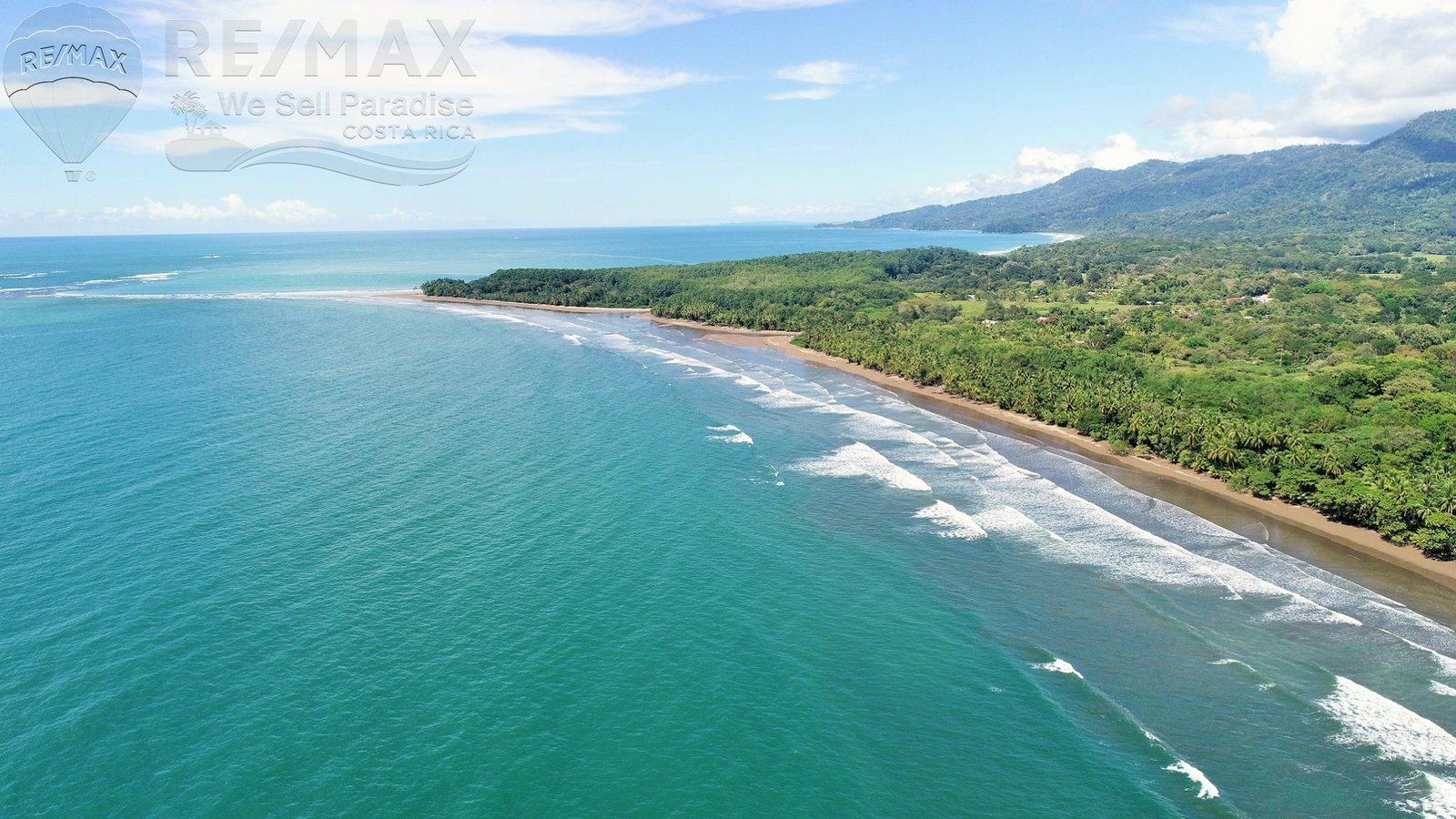
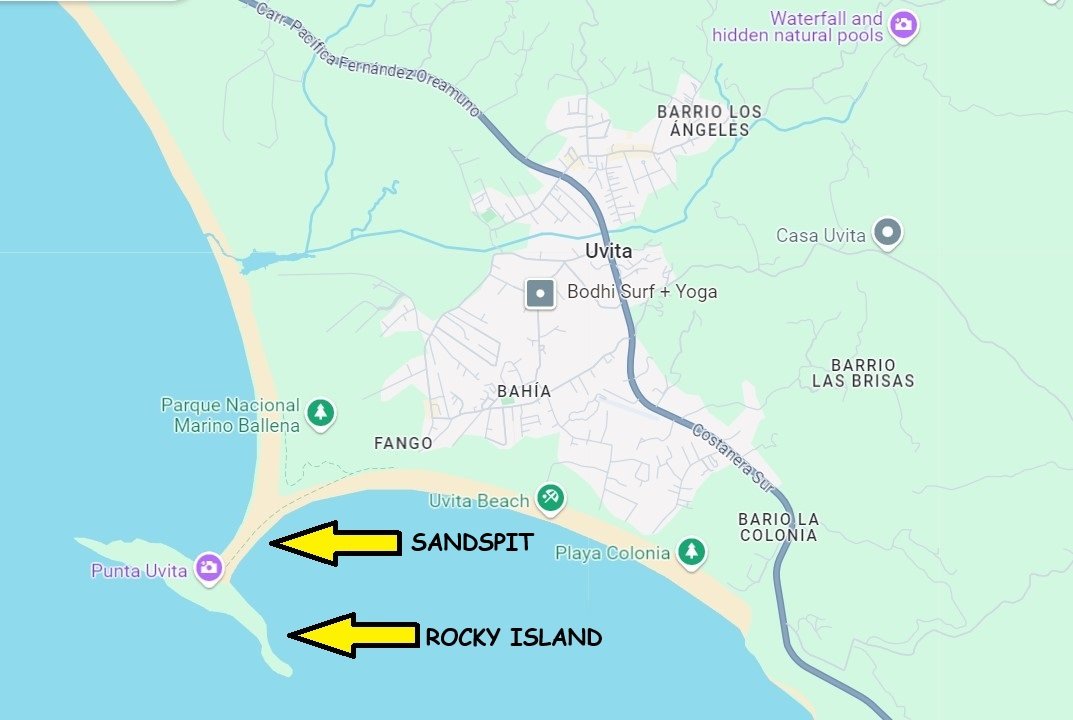
LET’S WALK TO THE WHALE’S TAIL
It pays to mention that many people expect to see the full formation from the beach – in fact this is impossible. You need to get up into the hills behind Uvita to do so. The formation is so large that it will not look like a whale’s tail while you are walking it – but stepping a foot onto the tombolo does give you a fresh perspective and a stunning stroll along one of the nicest beaches in Costa Rica.

ENTRANCE
Your walk to the Whale’s Tail Starts at the Marino Ballena NP main entrance gate (click link for map) – the main access gate in the town of Uvita. The park is large and can be accessed along numerous entrances along its length, so don’t go to the wrong gate! The main entrance is located at the terminal point of a the access road – and this road is full of local businesses such as cafes, restaurants, carparks, kayak and paddleboard rentals, adventure tour offices, shops, grocers, souvenir stands, and many others. Plenty of parking is available all along this road including just a stone’s throw from the entrance gate – see PARKING section below for detailed information.
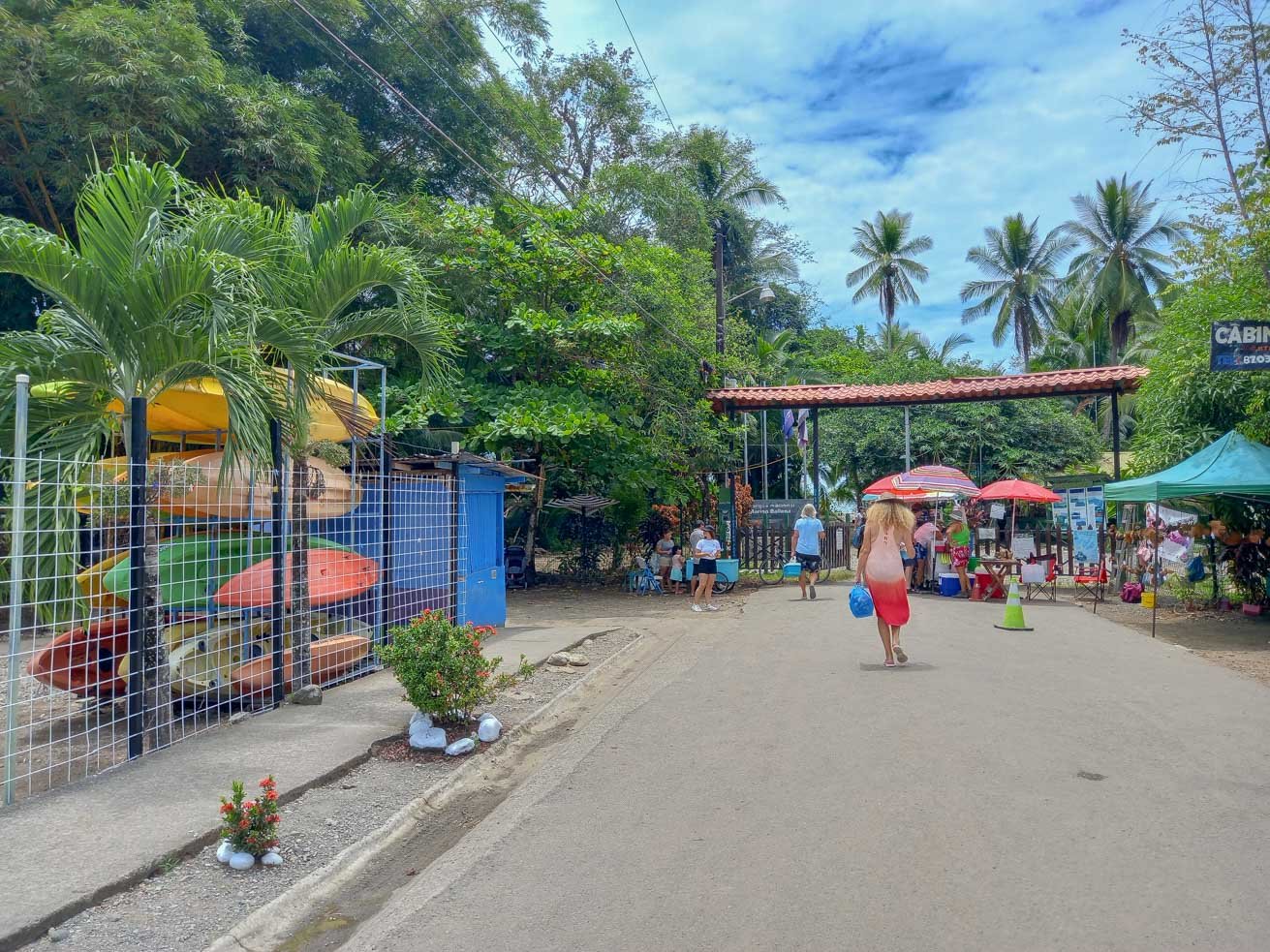
INSIDE THE PARK
As you pass under the gates, a large building on your right holds toilets and showers – make this a stop if you need to because there are no conveniences located past this green toilet shack. Shortly thereafter, a clerk will collect your entrance fee – residents of Costa Rica pay the equivalent of $2USD while visitors pay $6.
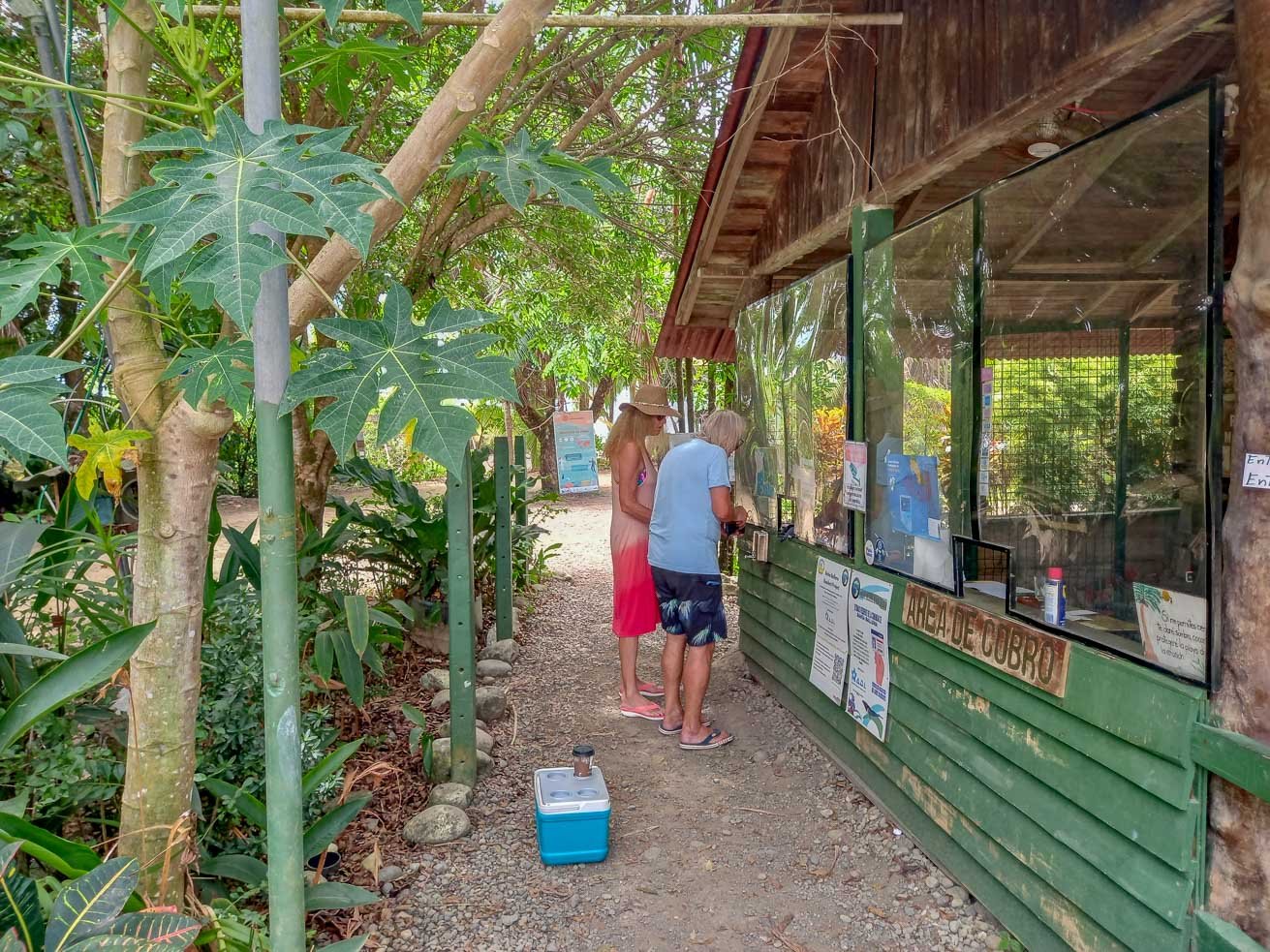
WALK TO THE BEACH
After paying, a short walk – less than 200 meters – will take you to the beach called Playa Uvita. The walk is beautiful, passing under the canopies of palms and following a river (note the crocodile warning signs)! Make sure you give way to the tractors pulling fishing and whale watching boats – in the morning, especially, there is a rush hour of boats on their way to enter the Pacific surf.

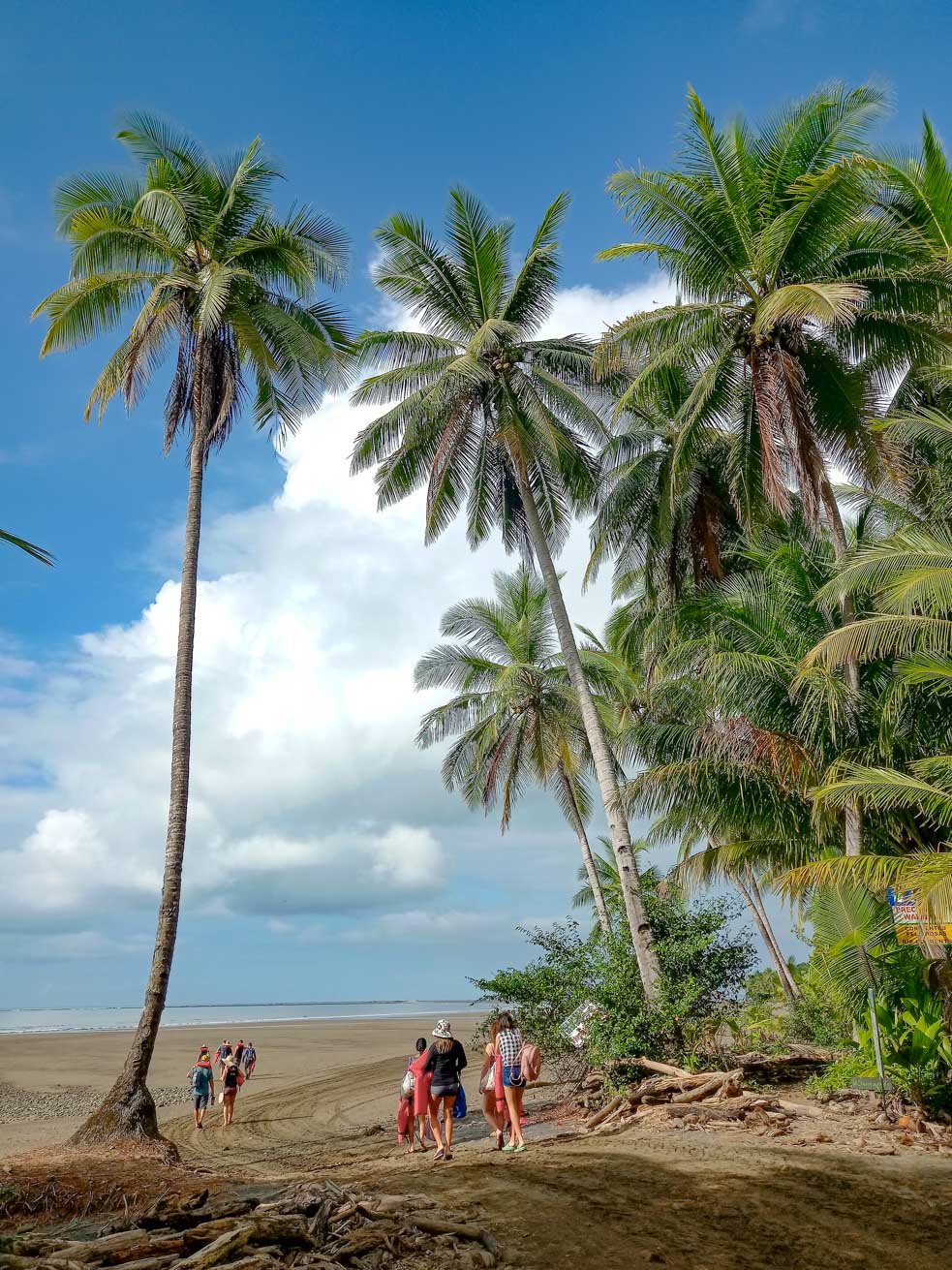
FROM THE BEACH TO THE WHALE’S TAIL
As you enter the beach, turn to the right. You are now 800 meters from the start of the Whale’s Tail sandspit. You will be walking along coconut groves, with the towering coastal mountains on the flank and the beautiful Pacific Ocean on your left. Playa Uvita has been named one of the most beautiful beaches in the world.

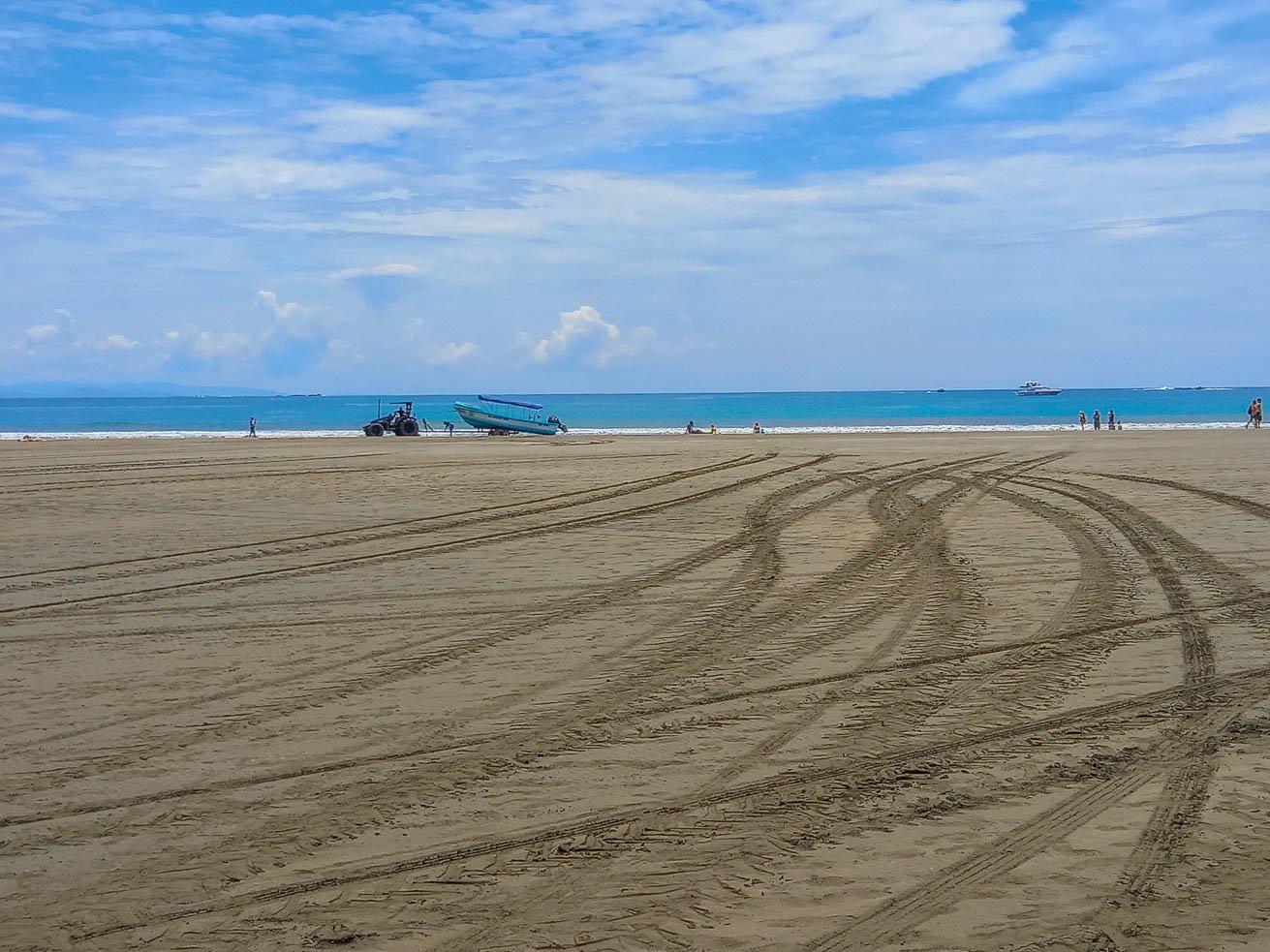
WALKING THE WHALE’S TAIL
From the starting point at the base of the formation, an approximately 700 meter walk will bring you to Punta Uvita, the rocky island that marks the ‘fin’ and thus the tip of the Whale’s Tail. Depending on the tides, you may start at a reasonably fat or much thinner stretch of sand – and this stretch of sand will keep getting narrower as you approach the rocky island.
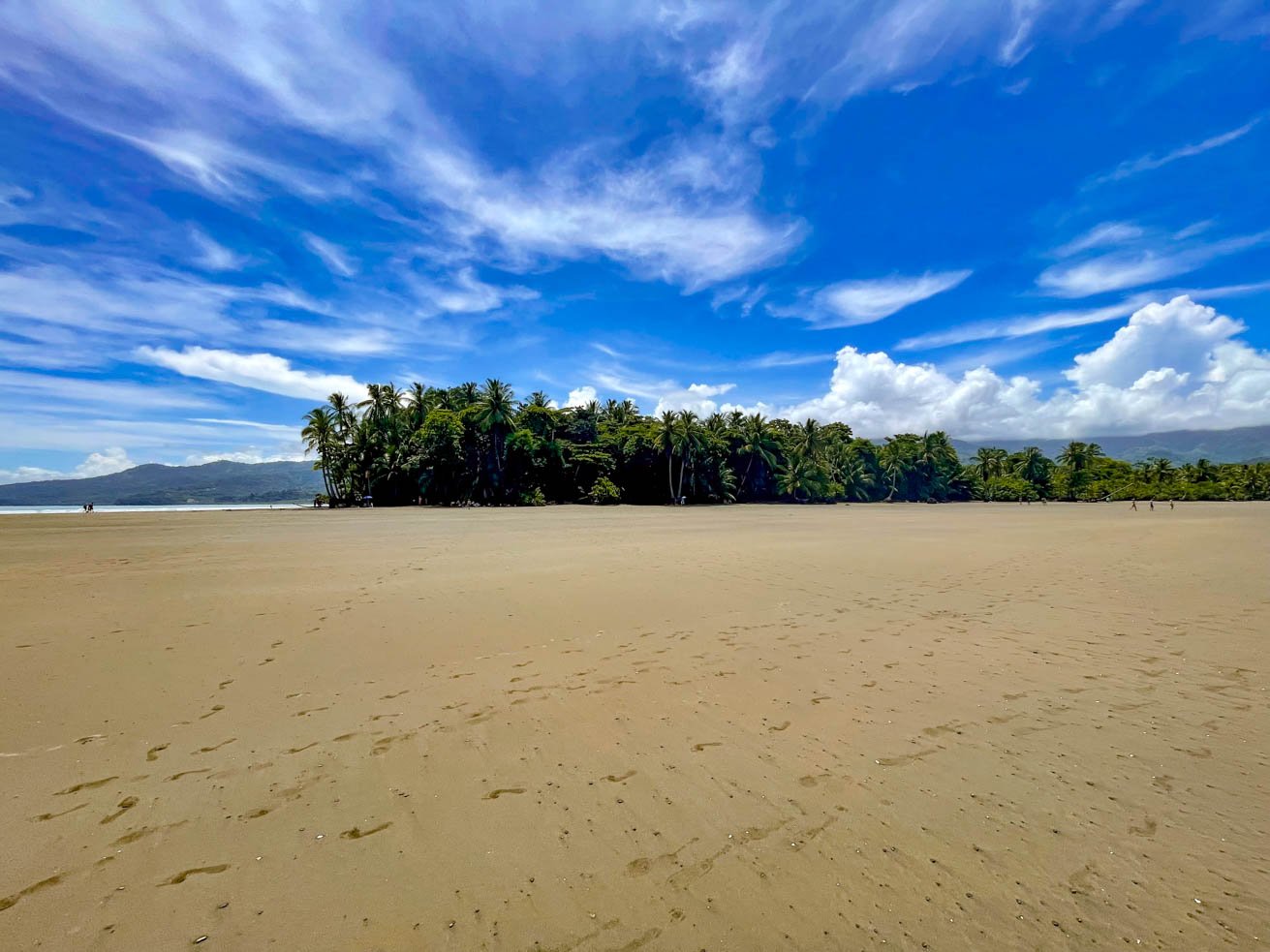
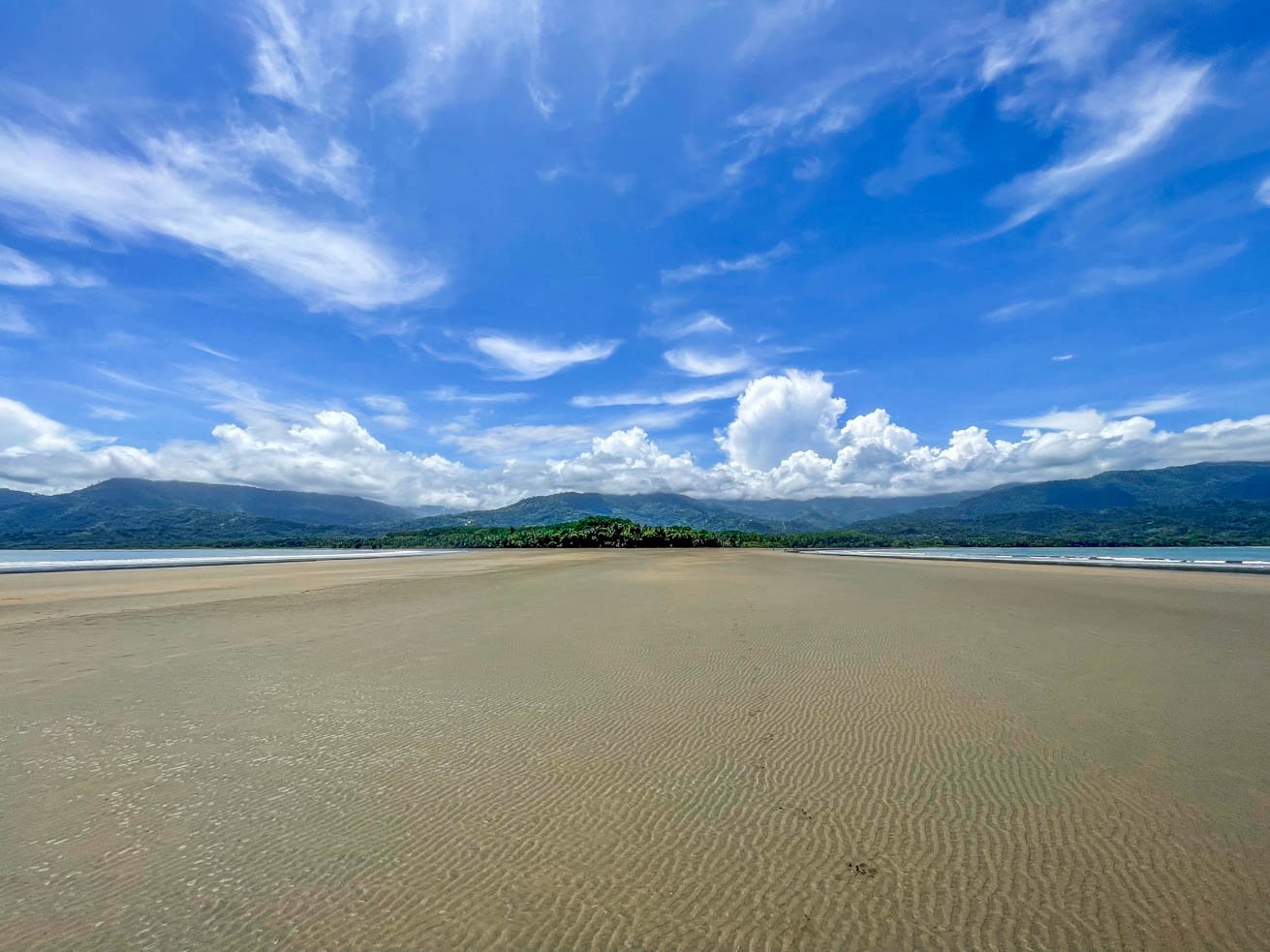

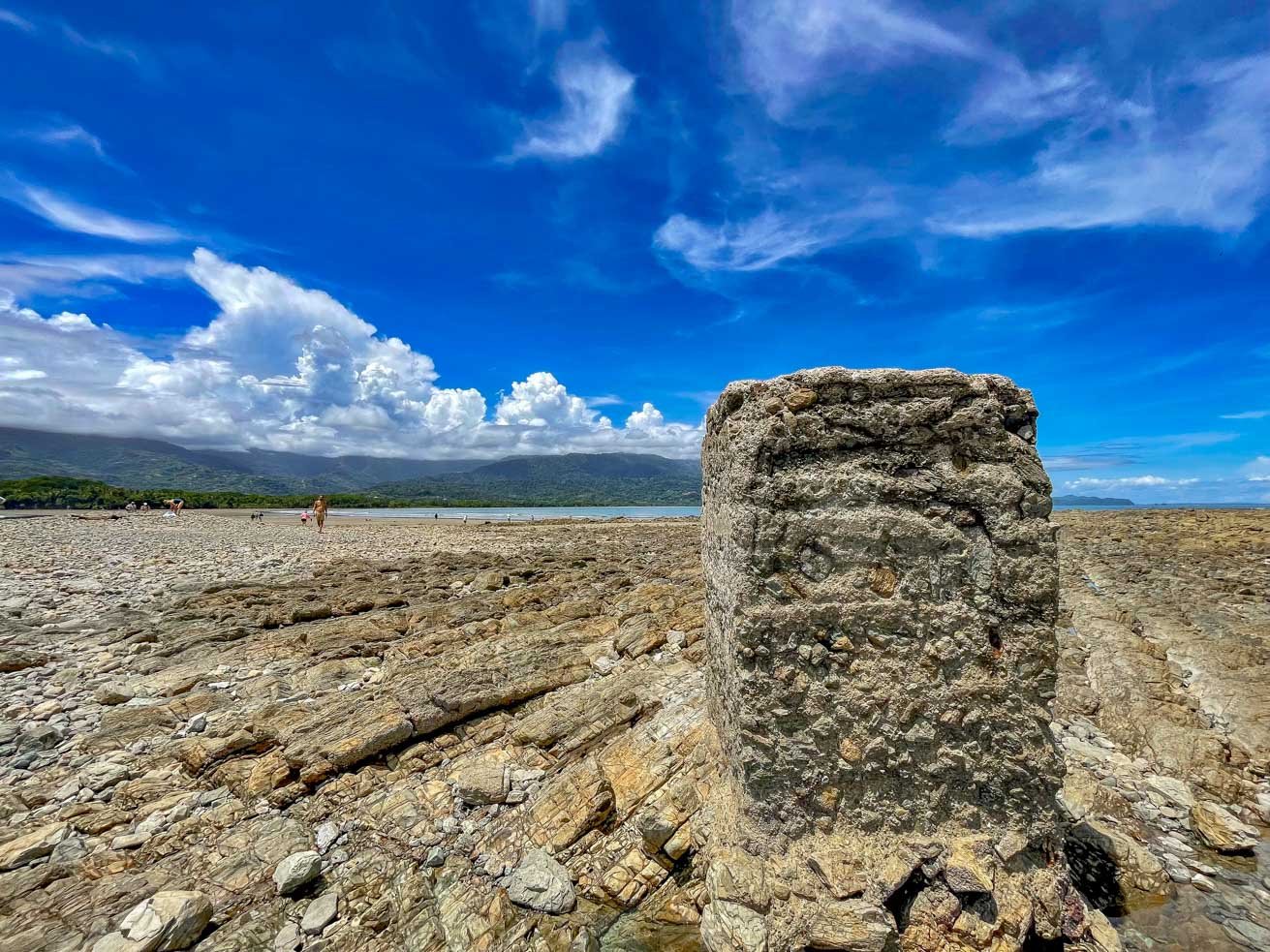
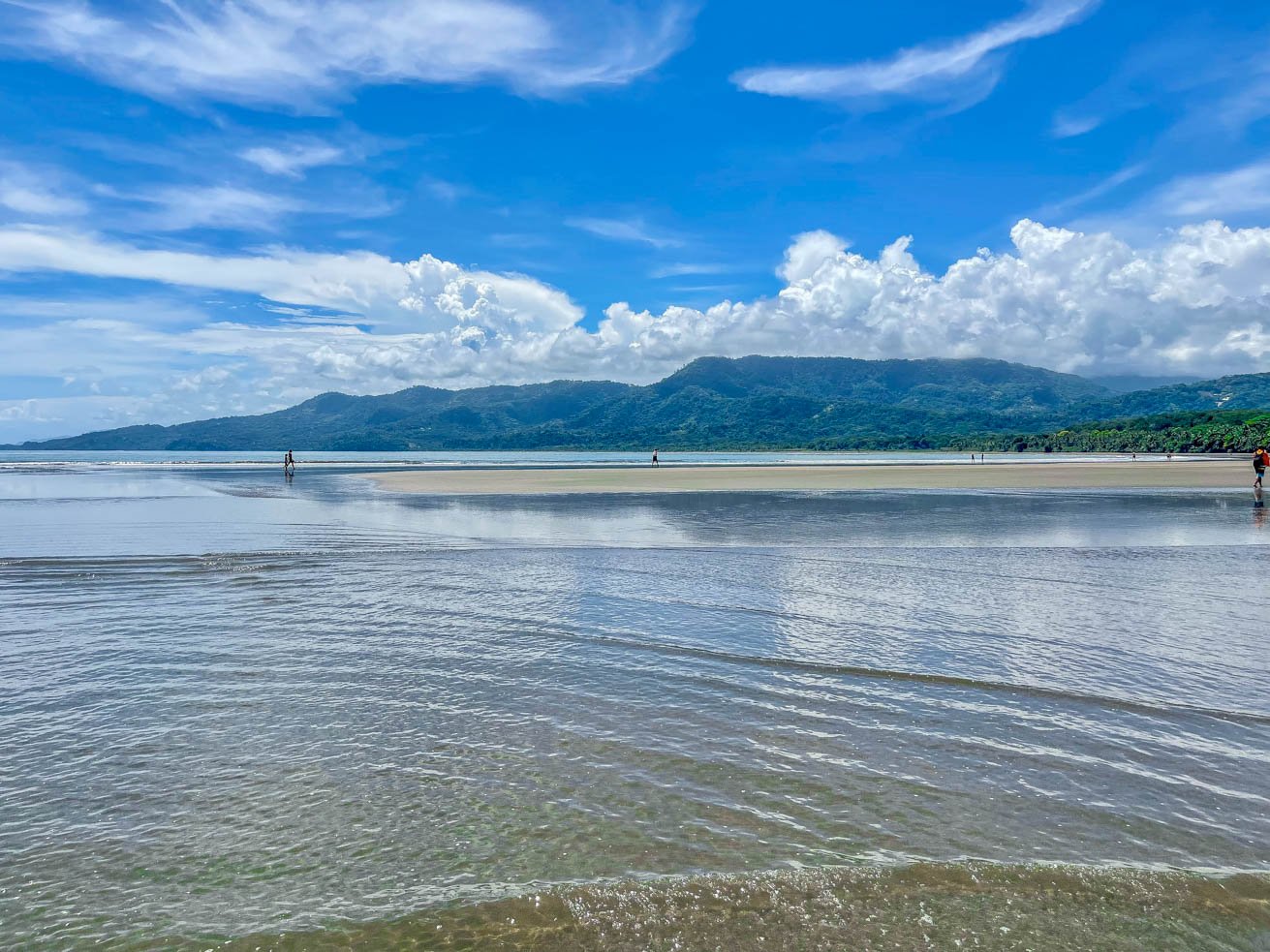
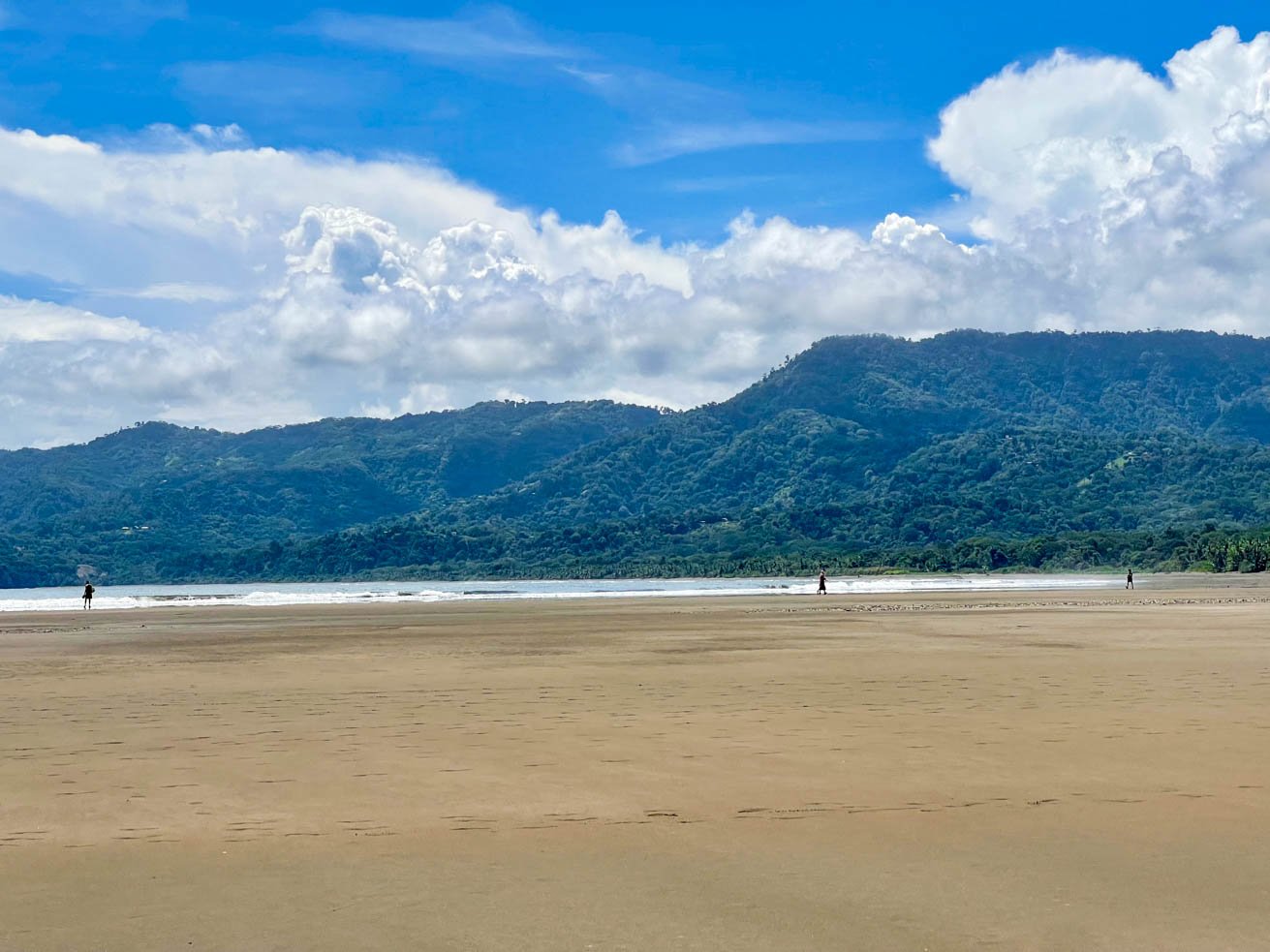
SUMMARY OF APPROXIMATE DISTANCES
- Front Gate to Playa Uvita: 200 meters
- Playa Uvita to base of the Whale’s Tail: 800 meters
- Base of the Whale’s Tail to the tip of the formation: 700 meters
So in all, a one way trip from the front gate to the tip of the formation is a distance of approximately 1.7 kilometers, or just over 1 mile. A leisurely walk with stops for pictures would take more or less 30 minutes, one way.
GET THE TIMING RIGHT!
If you wish to walk the spit and visit the rocky island end of the Whale’s Tail, it is vital you pay attention to the tides. High tides and especially the exceptionally high King Tides that happen around the times of New and Full Moons wash over the sandspit, submerging it under the Pacific waters. It is best to set off an hour or two before the low tide arrives as this will give enough time to walk the sand spit, hang out at the tip of the formation, and safely return to the beach. If you miss the tide window, the wait time can be long – even half a day – before it is safe to venture out again.

PLAYAS UVITA AND HERMOSA
While the Whale’s Tail steals a lot of thunder, don’t overlook the two beaches that come together at the sandspit: Playa Hermosa (meaning beautiful or gorgeous) to the north of the formation, and Playa Uvita to the south. Both beaches are considered some of most beautiful in Costa Rica – – their typical sparkling & dark Pacific-coast sand is flanked by coconut groves, mangroves, beach almonds (macaws’ favorite snack) and towering coastal mountains. Macaws, toucans, sloths, monkeys, dolphins & whales are regular visitors. So when the high tide starts to swallow the Whale’s Tail feel free to relax amongst the sands, estuaries and coconut groves. Swimming, water sports, snorkeling, a ball game or wildlife spotting are just some of the beach activities on the menu. If you are lucky, you may witness a baby turtle release as well!
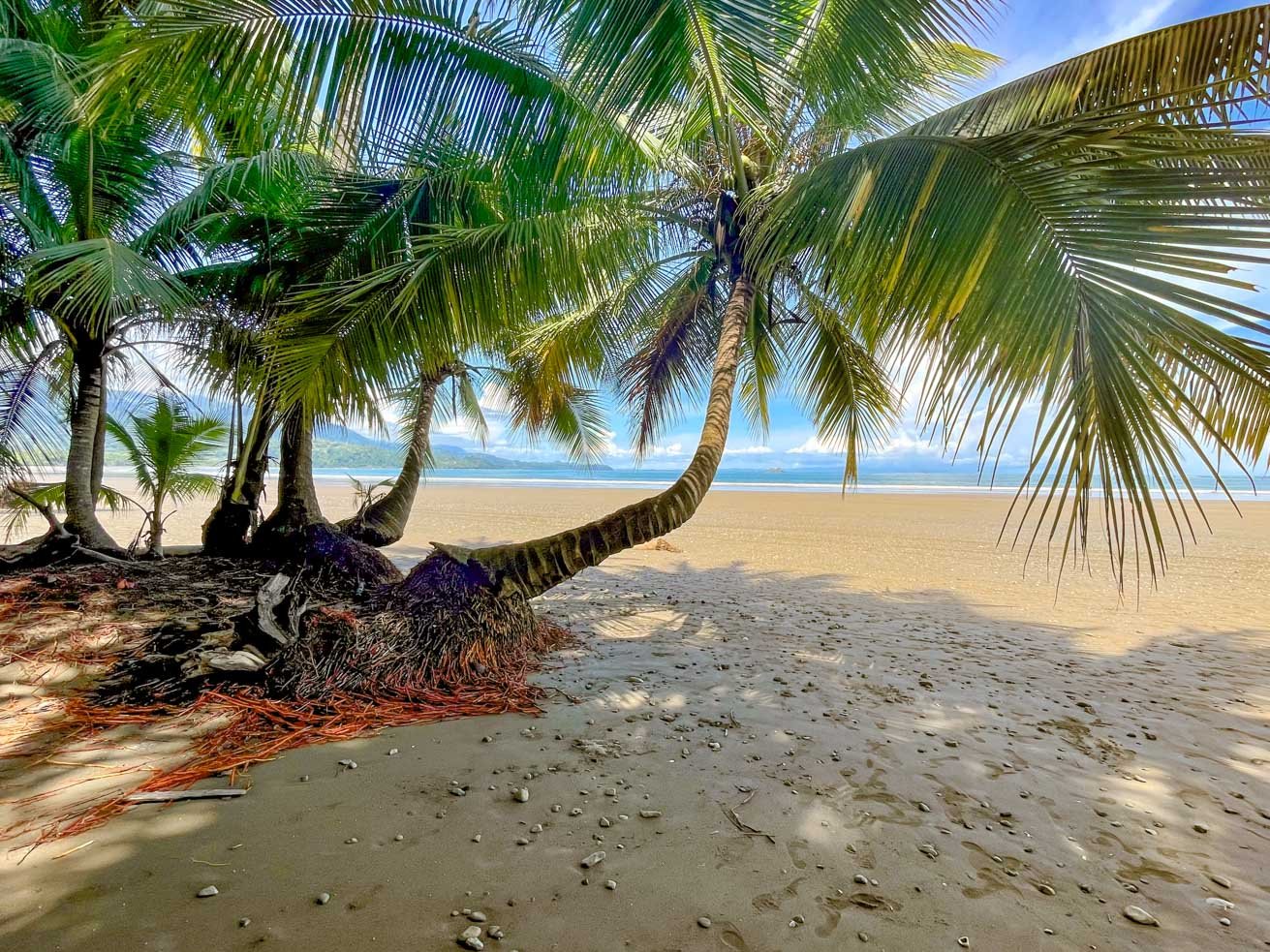
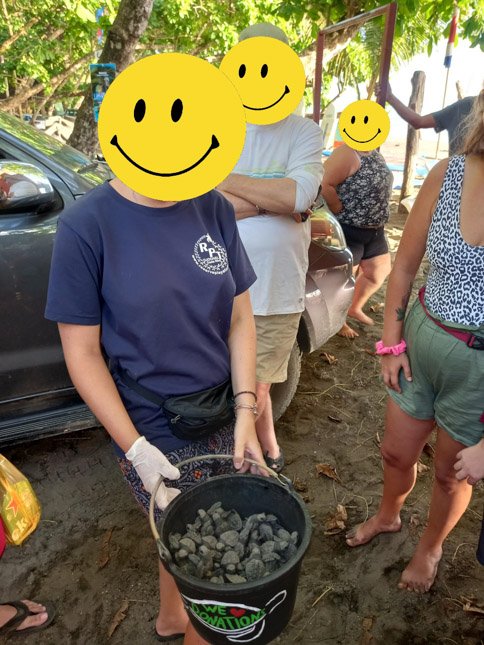
For security reasons, it is best not to bring valuables with you to the park. Your belongings can be taken when they are in the parked car or when they are sitting on the beach while you are in the water, playing beach games or exploring the local area with your camera. This is common sense advice that is applicable anywhere in the world.
PARKING
Countless private parking lots are available, some literally a stone’s throw from the national park entrance gates. Typical charges range from 2-4,000 Colones ($4-8) per day. Even though many of the carparks are secure, remember the standard security precautions – close the windows, lock the doors and never leave anything valuable in the vehicle.

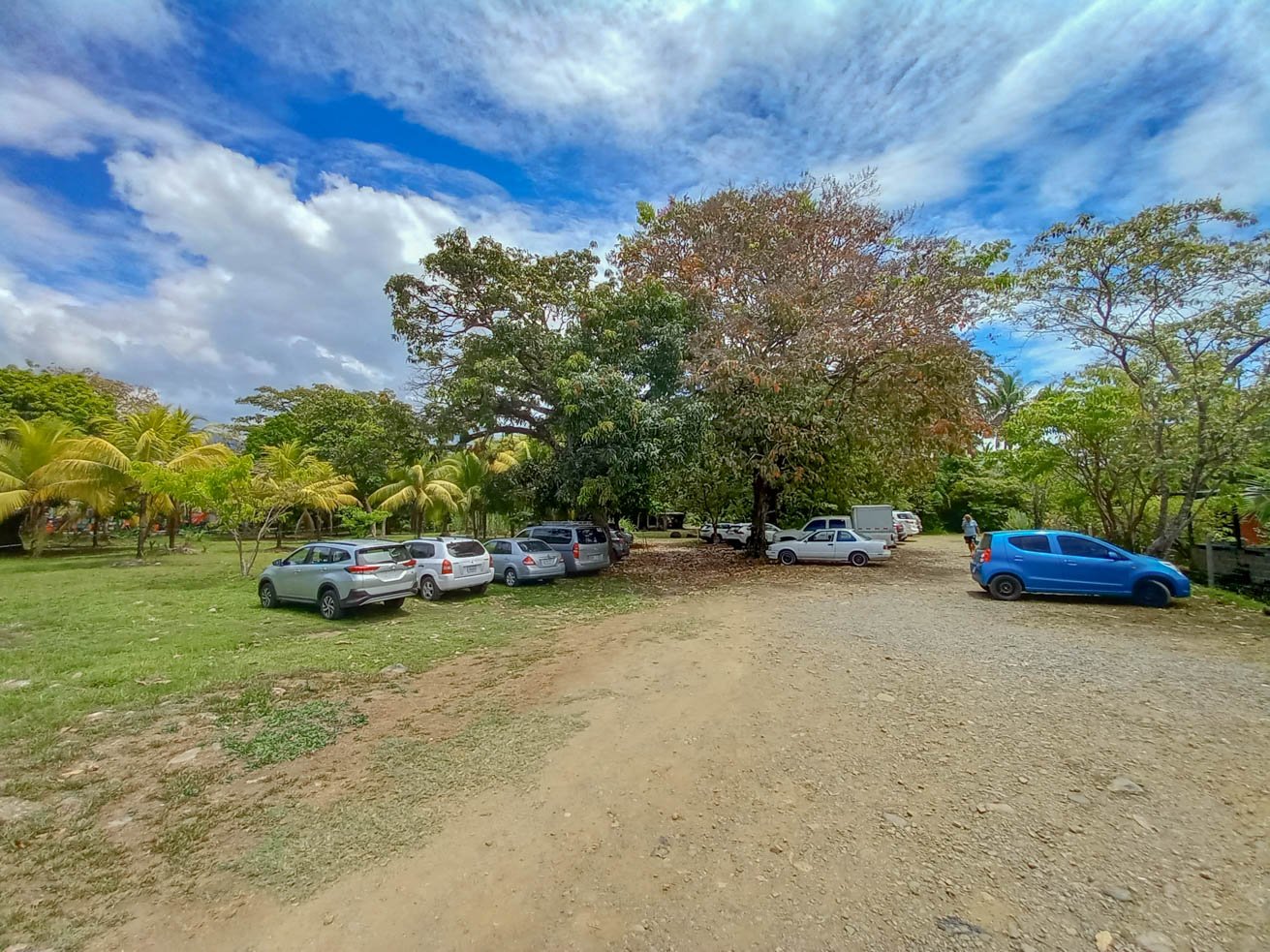
THE NATIONAL PARK AND LOCAL AREA
In this corner of Costa Rica, it is all about the whales. The migrating Humpbacks call on our waters twice a year – we get BOTH the northern hemisphere and southern hemisphere whales here – and the excitement is through the roof! The whales can be observed from numerous whale watching boats or straight from the shore, as they often venture very close to our sparkling beaches. ‘Ballena’ is the Spanish term for ‘Whale’ – and so our area is called Costa Ballena, or Whale Coast. The Whale’s Tail marks the nexus of the whale watching activities as Uvita is the home-base for most local boat excursions – but the Costa Ballena area extends from the surfing Mecca of Dominical in the north down to Costa Rica’s jungle-clad culinary capital of Ojochal in the south. This is Costa Rica’s best whale watching area.
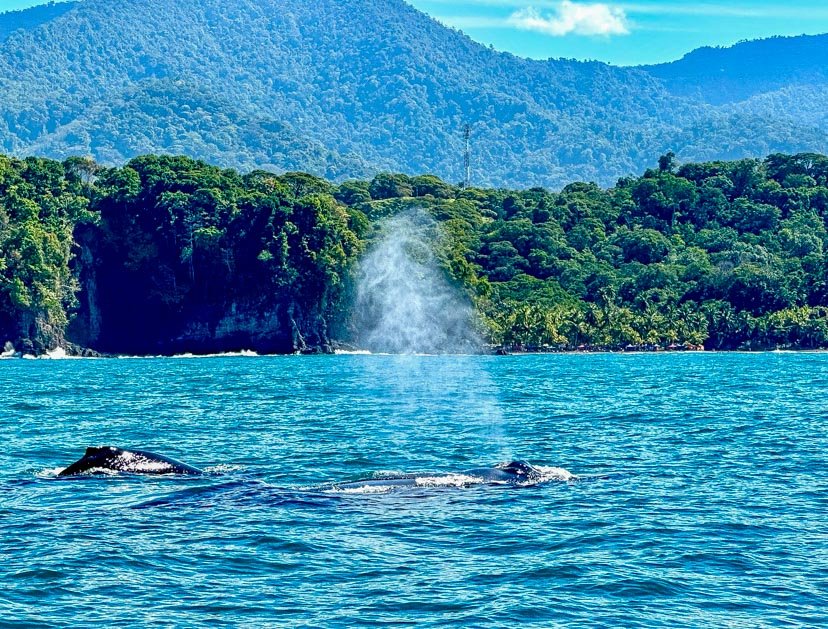
Scores of businesses use ‘Ballena’ in their name and display the Humpback Whale as part of their logos. You can stay at the Villa Ballena or Cristal Ballena Hotel, eat at the Ballena Bistro or Marino Ballena restaurant, buy fruit at the El Mercado Bahia Ballena, have a read of the local Ballena Tales Magazine, go whale watching with Ballena Tours, or visit Bahia Ballena Medical Services!
OTHER FAMOUS TOMBOLOS
For comparison and to satisfy your curiosity, here are some examples of tombolos found around the world:
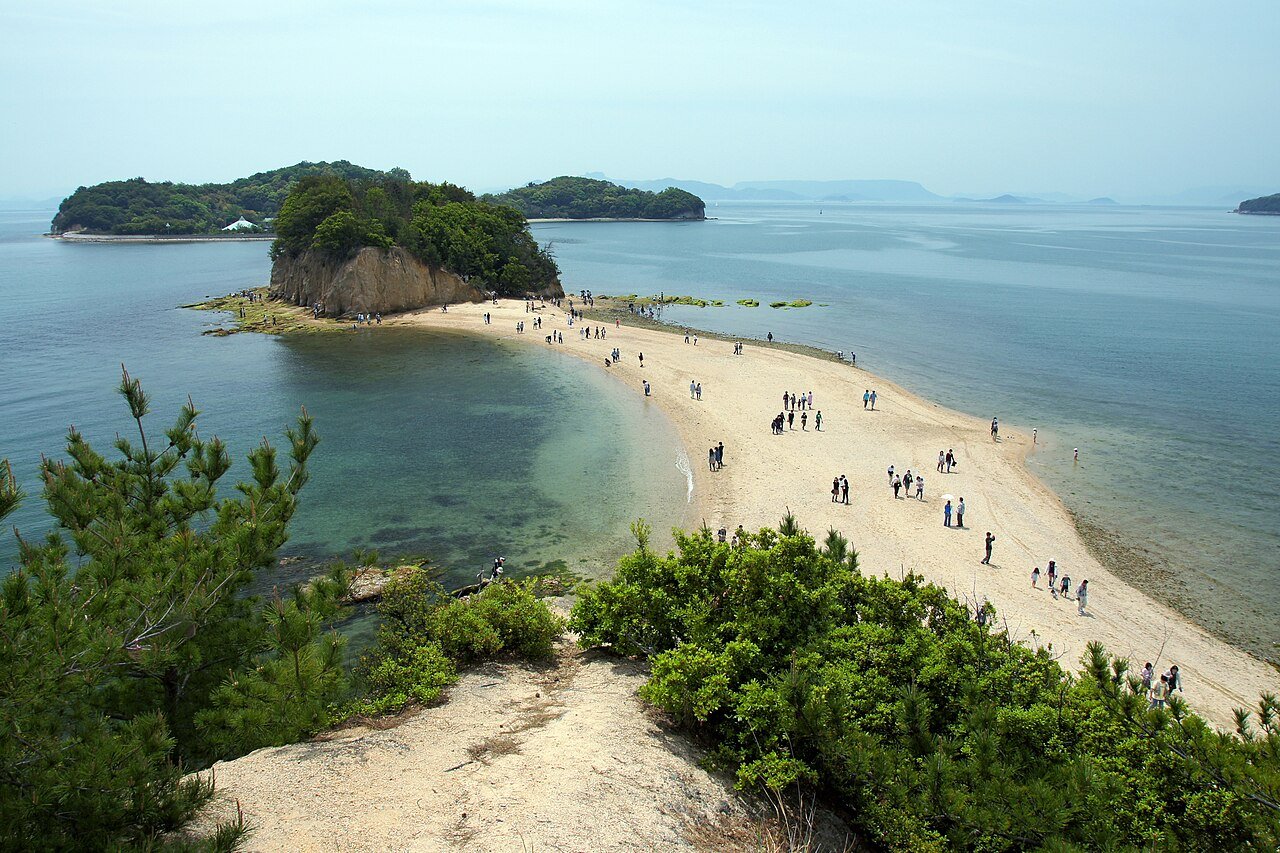


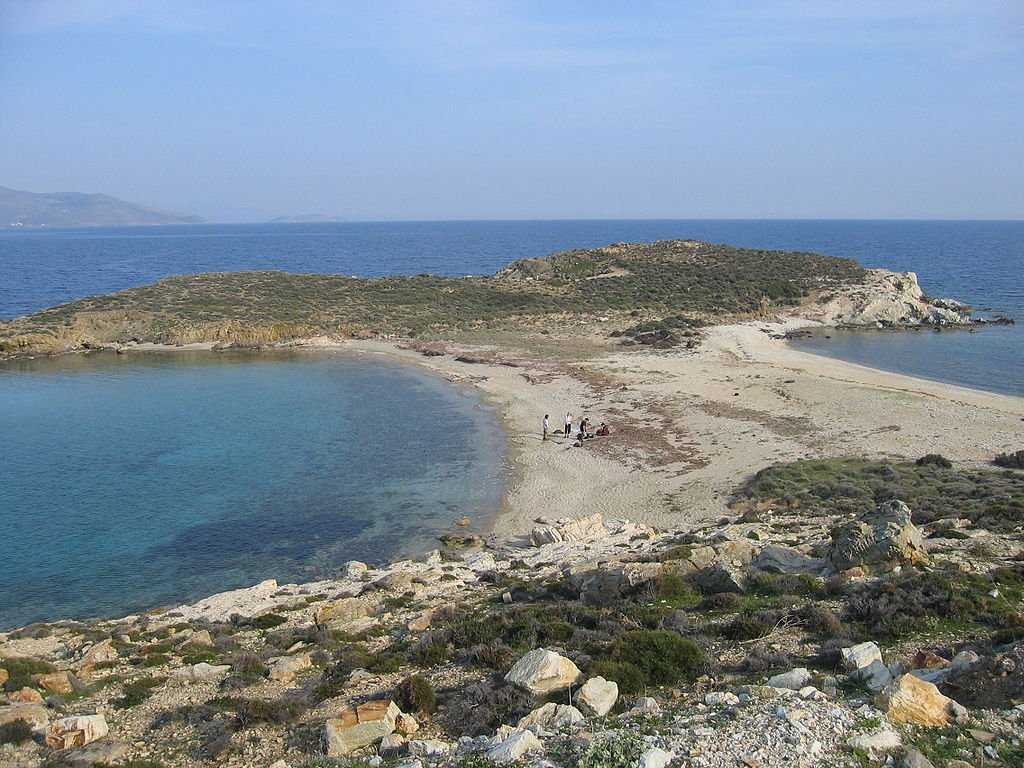

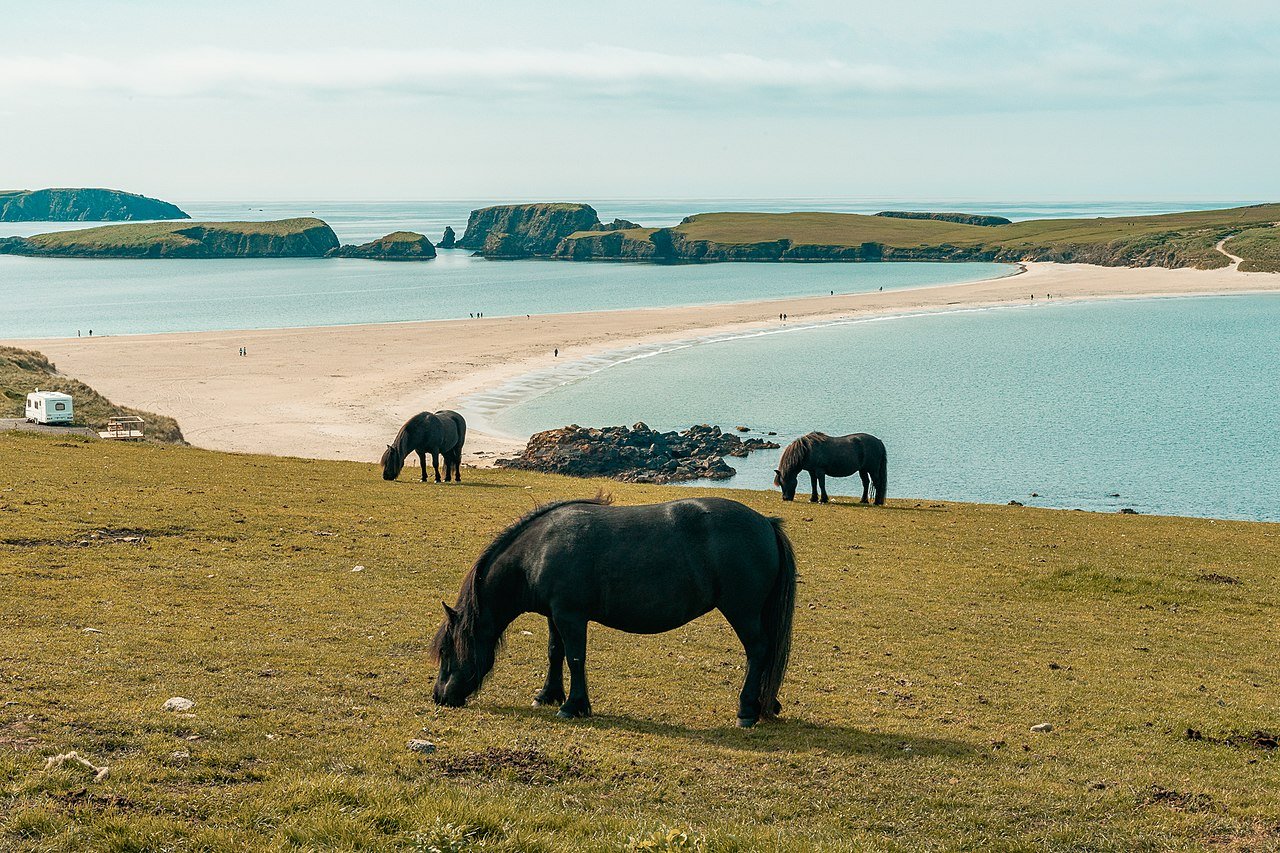
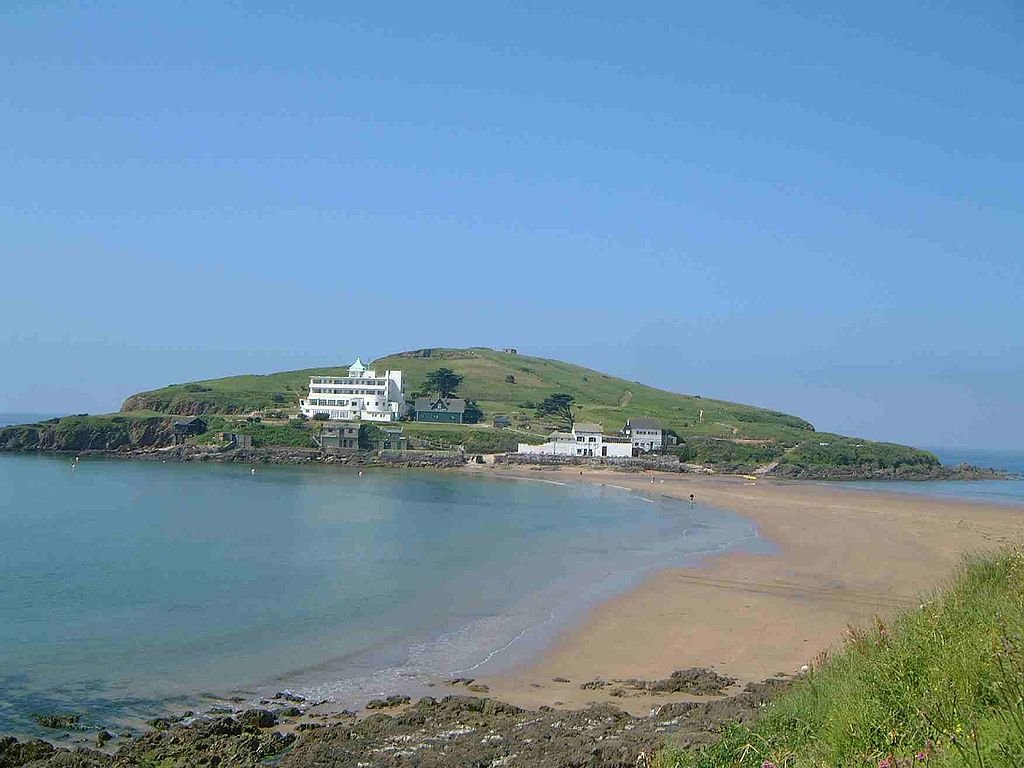
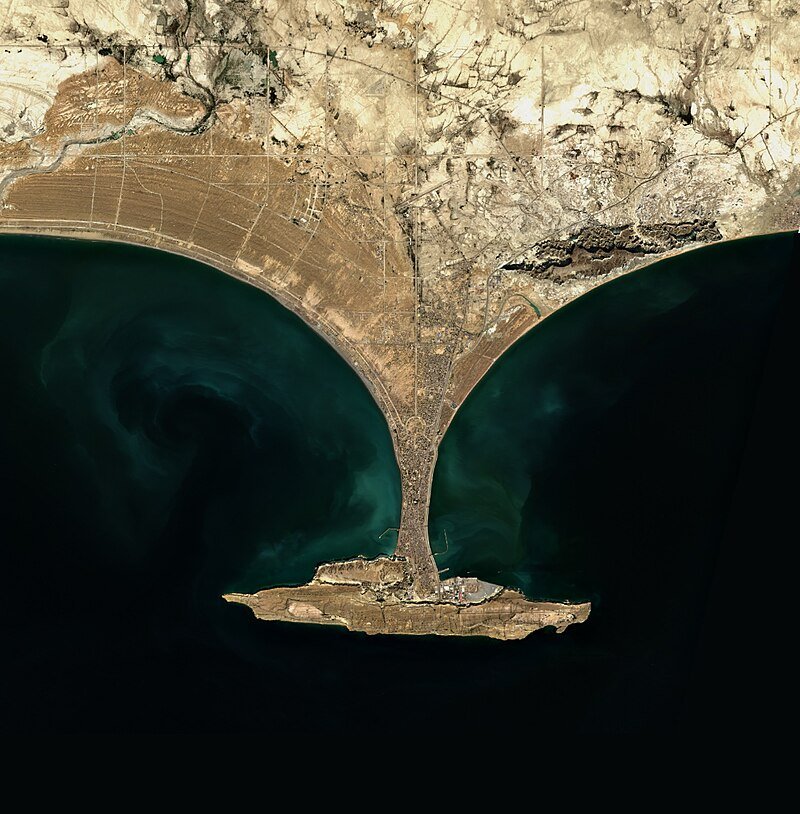


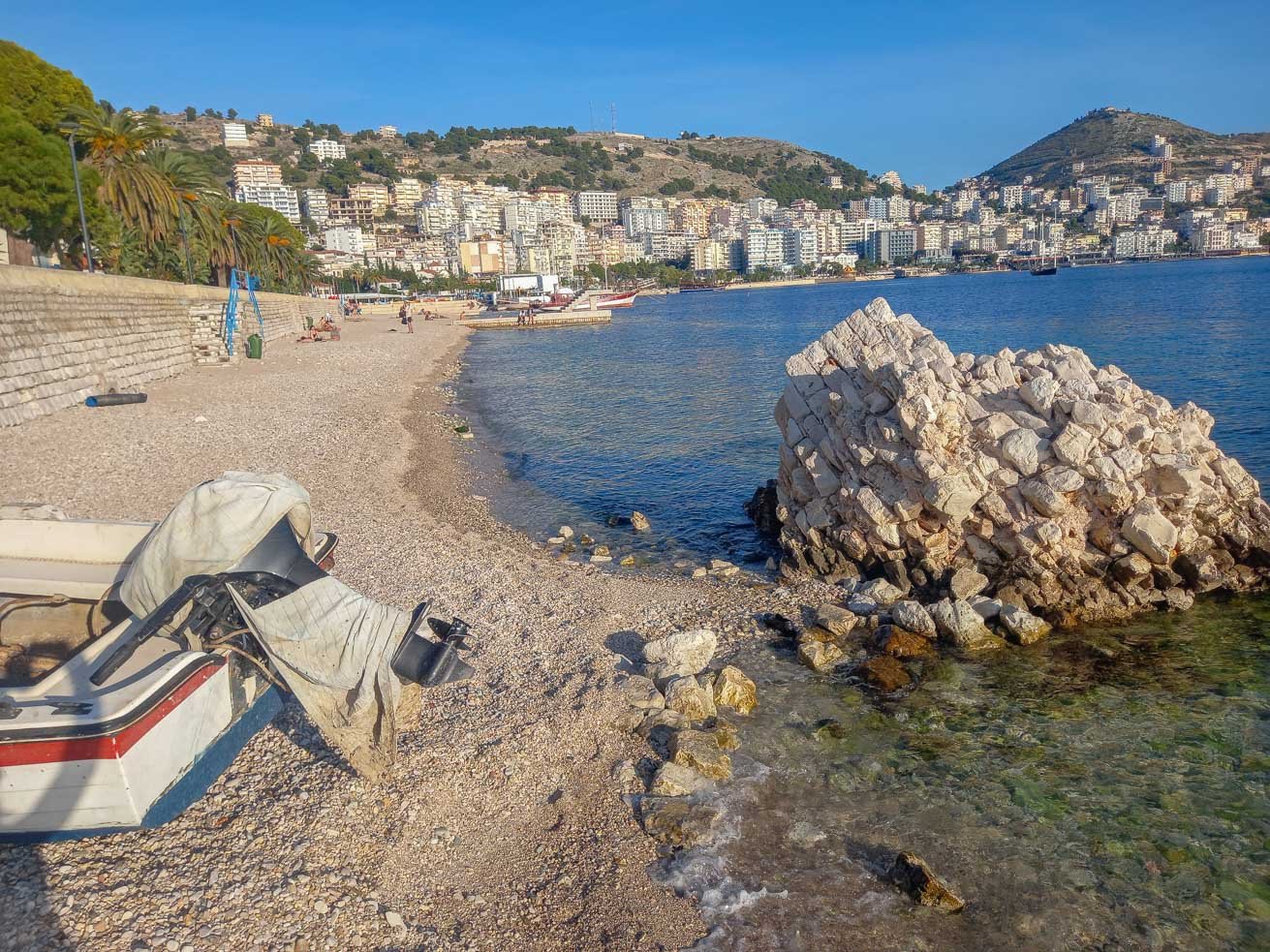
If you are visiting our Costa Ballena region, a visit to Marino Ballena National Park is a must – whether you want to enjoy the beaches, walk the Whale’s Tail, or partake in the myriad of adventure or recreational activities too numerous to count. Hopefully this humble guide will simplify your planning and help you to confidently set your GPS towards the front entrance to the park!
All information correct as of 30 October 2024. To see most up to date information, visit the Marino Ballena National Park website here. You may also wish to study the park reviews on the TripAdvisor site here.
Imagine living in a place where passing Humpback Whales are a part of your day-today life…or where world-class sport fishing, SCUBA or surfing are your regular weekend activities…This can be your life, and we can turn your dreams into reality much faster and easier than you think! To browse properties currently listed in the vicinity of Marino Ballena National Park, see the RE/MAX WE SELL PARADISE Uvita listings here.
IMPORTANT: The waves and currents at Playas Uvita & Hermosa can create dangerous conditions, so caution is always advised, even under the watchful eyes of the lifeguards. Before you head to the beach, please read our article about RIP CURRENTS here, and follow the safety advice contained therein. Also ensure you do not leave your valuables in the car or take them to the beach with you, especially if you are planning to leave them unattended while you swim.
Cover image c/o pexels-carlos-valverde-fonseca.



